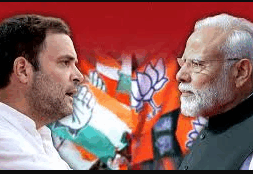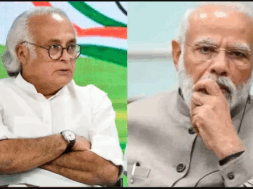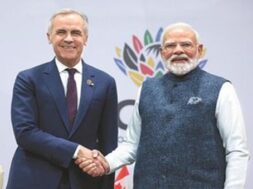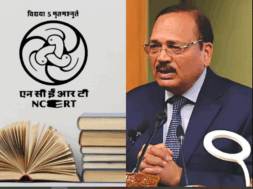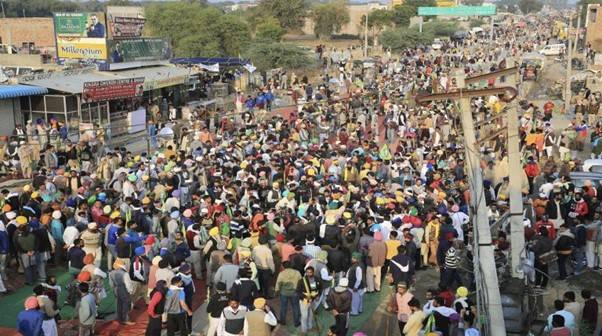
No Breakthrough Yet in Farmers – Centre Talks, to Meet again on Friday
Manas Dasgupta
NEW DELHI, Jan 4: As anticipated, the seventh round of talks between the farm union leaders and the central government also proved futile to break the 39-day old stalemate over the three contentious farm laws as the government refused to repeal the laws and the farmers sticking to their stand not to accept anything less than total roll back.
Though the two sides have agreed to hold another round of discussions on January 8, none of the sides are optimistic about finding a possible solution considering the two extreme stands adopted by the two sides.
After the seventh round of talks between protesting farmer unions and three central ministers on Monday ended inconclusively, the farmer leaders said the government took the stand that it needed to consult internally and thereafter it would come back to the unions.
The union leaders will also have their own meeting on Tuesday to decide their next course of action.
Union Agriculture Minister Narendra Singh Tomar, Railways, Commerce and Food Minister Piyush Goyal and Minister of State for Commerce Som Parkash, who is an MP from Punjab, held the talks with the representatives of 40 farmer unions at the Vigyan Bhawan.
While the government told the participating farm union leaders it would review any clause the protesters had problem with and point out what they considered objectionable in the legislations, the farmers insisted that they would not call off the agitation till the three laws were repealed through the ordinance route and legal guarantee given to Minimum Support Price (MSP), a farm leader said, which resulted in a standoff.
Two key demands of farmers – complete roll-back of three farm laws farmers say will hurt their livelihoods and a law guaranteeing minimum support prices (MSP) for farm produce – were on agenda during Monday’s talks. Even as Reliance Industries chairman Mukesh Ambani issued a statement that the company had no intention to launch corporate farming, a fear frequently expressed by the farmers lobby that driven them against the three laws, farm leaders apparently are not convinced.
The meeting began with a two minute silent tribute to the farmers who lost their lives during the ongoing protest, according to a farm union representative. More than 50 protestors have died since the agitation began, from various causes including traffic accidents, heart attacks, and at least three protestors who allegedly committed suicide.
On December 30, the sixth round of talks was held between the government and the farmer unions, where some common ground was reached on two demands — decriminalisation of stubble-burning and continuation of power subsidies.
Thousands of farmers, mainly from Punjab, Haryana and western Uttar Pradesh, are protesting at various Delhi borders for over a month against the three laws. They have stayed put despite heavy rains and waterlogging at protest sites over the last couple of days, besides severe cold weather conditions prevailing in and around the national capital.
Enacted in September 2020, the government has presented these laws as major farm reforms and aimed at increasing farmers’ income, but the protesting farmers have raised concerns that these legislations would weaken the MSP and “mandi” (wholesale market) systems and leave them at the mercy of big corporations.
The government has maintained that these apprehensions are misplaced and has ruled out repealing the laws.
“The government said it wanted to go clause by clause of the three farm laws. It said laws can’t be repealed. We told them that there is only one way, which is to Repeal the laws and bring a law guaranteeing minimum support prices,” farm leader Joginder Singh Ugrahan said.
Unlike in the last round, the Union ministers did not share lunch brought by the farmers.
The Samyukta Kisan Morcha, the platform of farm unions, has hardened its stand, saying thousands of farmers will drive into the Capital in their tractors to hold their own Republic Day parade if their demands are not met by Jan 26.
Briefing media persons after the meeting, the union agriculture minister Narendra Singh Tomar said, “We wanted farmer unions to discuss three laws clause-wise. We could not reach any solution as farmer union remained adamant on the repeal of the laws.” However, he hoped that the next round would bring about the breakthrough. “Looking at today’s discussion, I hope that we will have a meaningful discussion during our next meeting and we will come to a conclusion,” he said.
But the farm union leaders gave a different version. “The ministers wanted us to discuss the law point-wise. We rejected it and said there is no point in discussing the laws because we want a complete rollback of the laws. Govt intends to take us towards amendments but we will not accept it,” Yudhvir Singh, Bharatiya Kisan Union leader said.
Ahead of the next round of talks between the Centre and the agitating farmers, the Congress Monday said it would be a “true test of nationalism”, and warned no government can face the wrath of farmers “who believe they are being deceived.”
The union minister for highways, Nitin Gadkari believed that the root cause of the stalemate between the two sides was the high MSPs decided by the government of most of the crops than what prevailed in the market. “At one point we had a shortage of foodgrains in the country. Then, after the Green Revolution, we now have surplus rice. Prior to 2020’s production, we had about 280 lakh tonnes of rice in our godowns. We can give rice to the entire world. In case of corn, the MSP is Rs 1,700, when the market price is about Rs 1,100. Last year, we exported 60 lakh tonnes of sugar, providing a subsidy of Rs 600 crore. Why is it that the cost of sugar in the international market is Rs 22 per kg but we are paying Rs 34 per kg for sugarcane? Our MSP is more than the international and market prices, and that is the problem,” he said.
Meanwhile, the Supreme Court accepted a letter petition sent to Chief Justice of India SA Bobde by a group of students from Punjab seeking an inquiry against Haryana Police for using water cannons, tear gases shells on farmers to stop them from proceeding to Delhi.
The students wrote an open letter to the CJI and urged that Haryana and Delhi police withdraw all the cases against farmers which were registered under alleged political vendetta.
